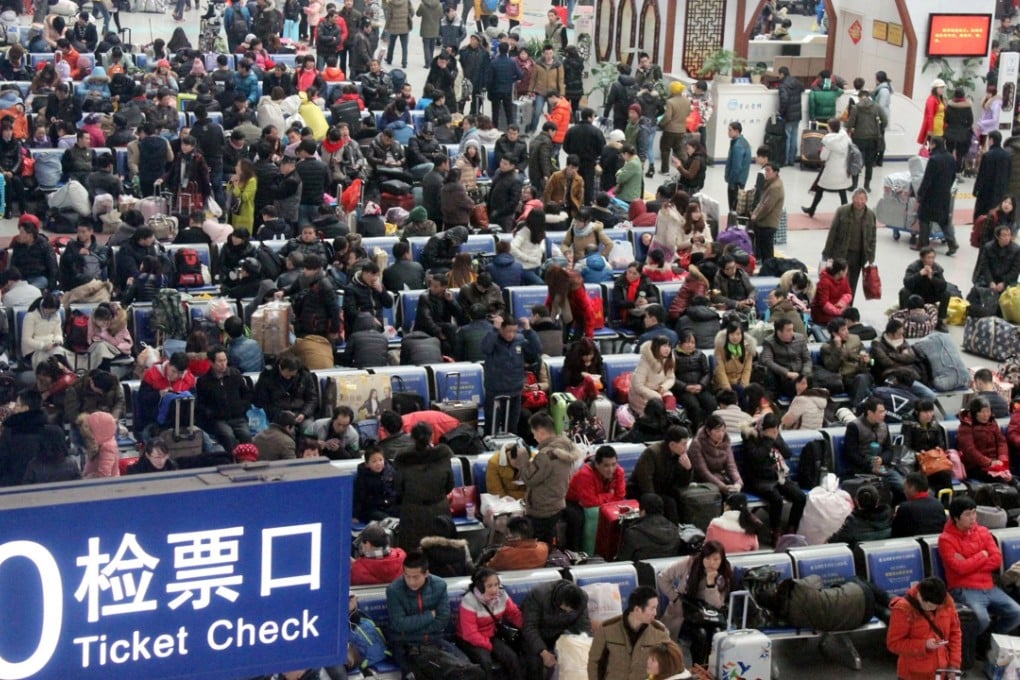Chinese travellers recall horrors of overcrowded, snow-hit Chinese Lunar New Year journeys past
A massive snowstorm in 2008 caused long delays for many, but millions of migrant workers now believe daunting, once-a-year trip home on overcrowded public transport is finally getting easier

For the millions of mainland migrant workers all heading home at the same time in the days leading up to Chinese Lunar New Year, the often daunting, once-a-year trip to see their “left behind” children remains worthwhile.
However, for some people that have braved overcrowded trains and buses, and paid hugely inflated prices to ticket touts and food vendors for more than a decade, there are signs that nationwide travel during the Spring Festival is finally getting easier, thanks to improved ticketing allocation and more choices of transport.
READ MORE: Ah, the joys of Chinese Lunar New Year train travel: smelly instant noodles, cheesy feet and noisy children

It was so crowded that some people slept in the overhead luggage racks and others even slept in the washroom. I didn’t dare eat or drink much – a walk to the toilet only a few metres away would have taken 30 minutes
“I waited for two days and one night just to board my train,” Liu recalled.
“When the authorities knew we had to wait overnight, we were shuttled by buses to an abandoned warehouse at the outskirts of Dongguan.
“It was raining and extremely cold and my shoes were soaked. The only way to stay warm was to eat instant noodles – I think I had at least five bowls that night.”
After managing to board the train, the journey which would normally have taken 21 hours, took more than 24 hours.